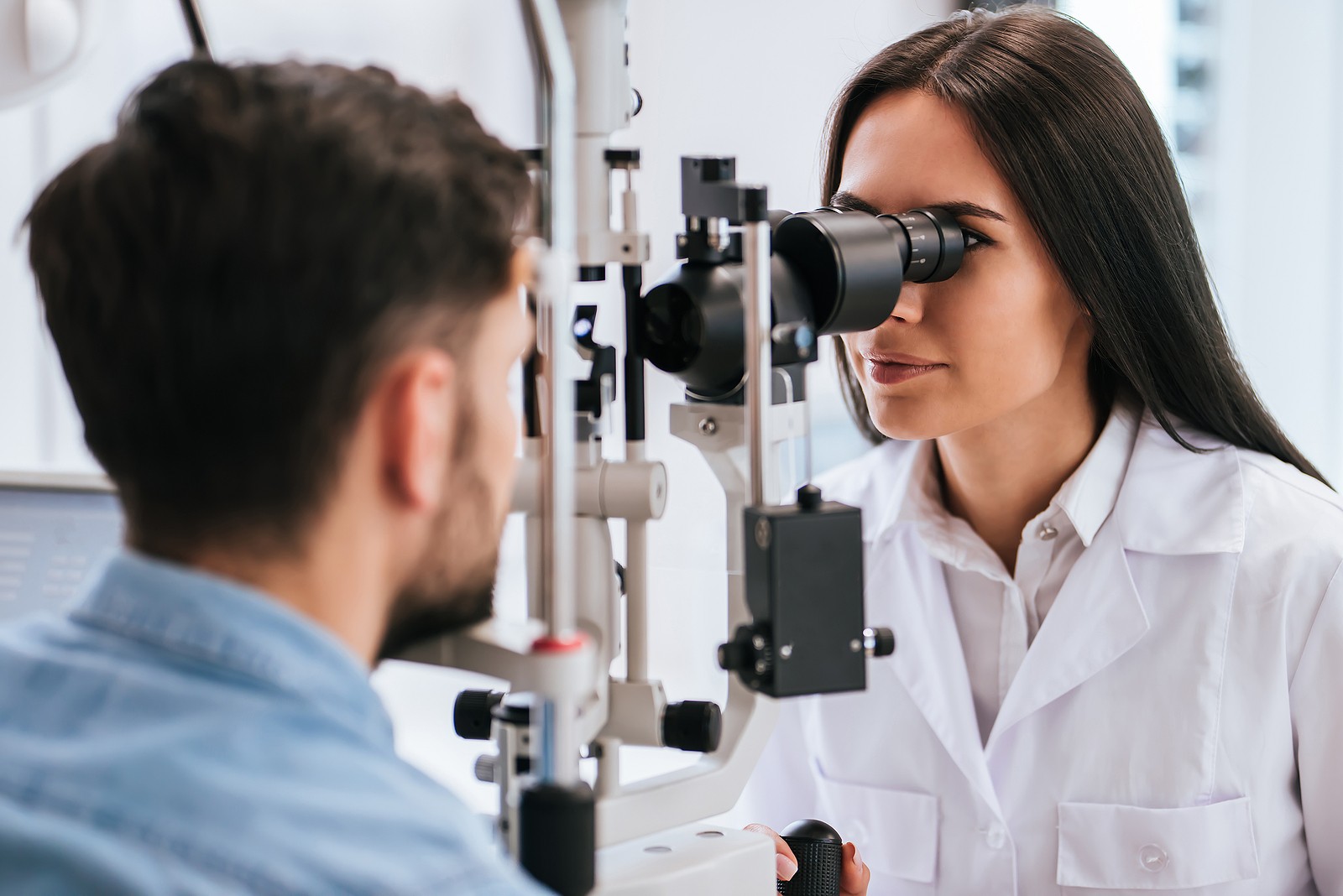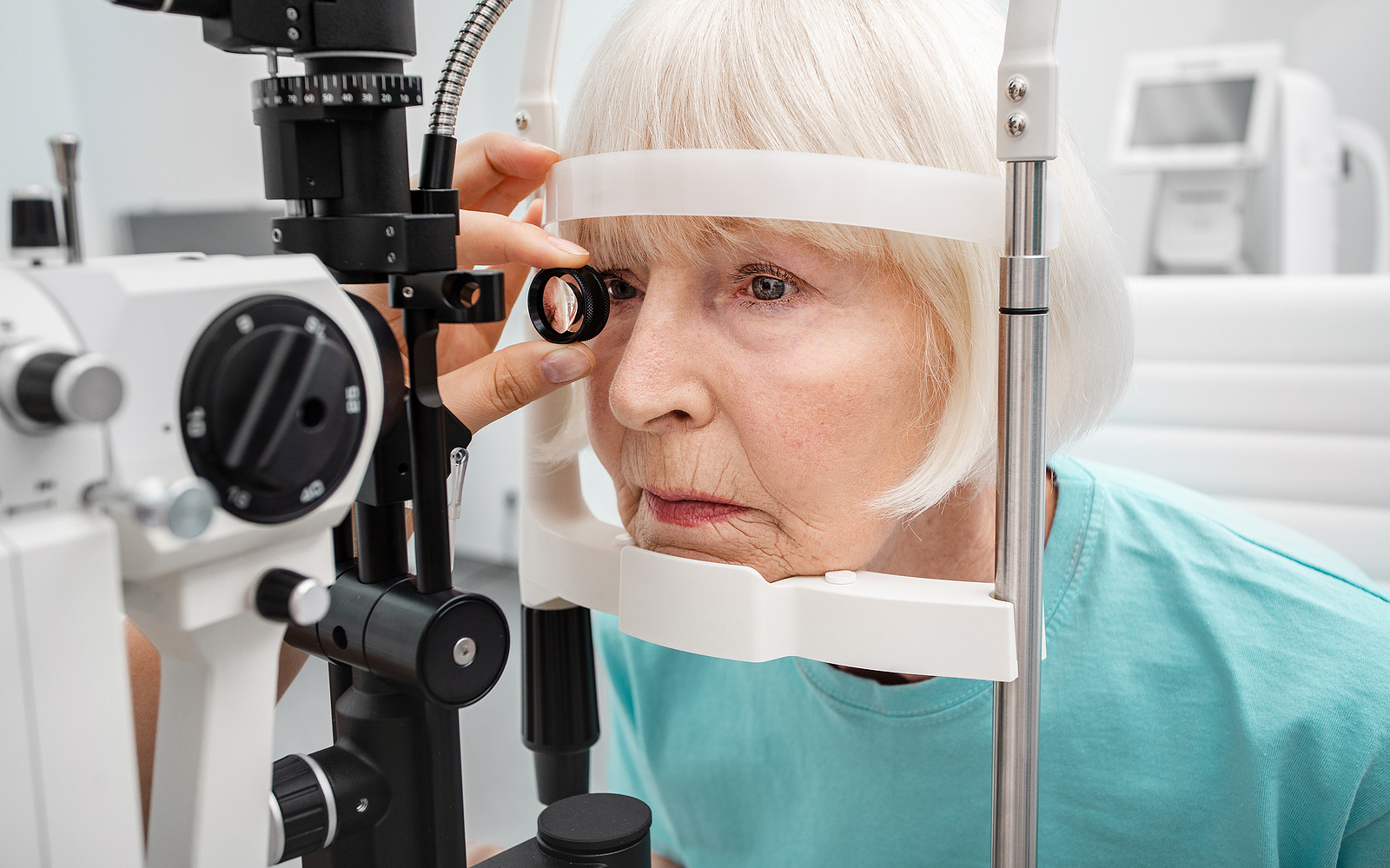Differences Between Annual Eye Exams and Medical Eye Exams

Did you know that August is National Eye Exam Month? It may seem like every day, week and month has a different symbolism these days. However, healthy vision is something we love to celebrate. Why not use this opportunity to schedule your annual eye exam at Swagel Wootton Eye Institute? We have trusted eye doctors in Mesa and Chandler ready to perform several different eye exams, depending on your specific needs.
Annual Eye Exam
Opinions vary on how often you should come in for a routine eye exam. Since the ophthalmologist or optometrist can catch eye conditions earlier if you come every year, we recommend annual eye exams for children and adults. In fact, the American Academy of Ophthalmology recommends annual eye exams starting at age 40.
This is essential since aging eyes can face more difficulty than earlier in life. By coming in for an annual exam, you can ensure that you catch vision changes and update your prescription to continue seeing crisp, clear images and vivid colors. Those over 65 require an extended exam to check for age-related conditions.
Preserving your vision starts with keeping up with your annual visits.
What To Expect in a Routine Eye Exam
Our eye doctors in Mesa and Chandler record your family medical history and test pupil reaction during a routine eye exam. The doctor will also check your peripheral vision, muscle balance, eye movement and coordination.
You’ll also go through a series of tests to check for refractive errors — myopia, astigmatism, hyperopia, presbyopia — that can impact your vision. If necessary, you’ll get a new eyeglasses prescription or contact lens prescription. You may also receive eye drops to dilate your eyes so that the doctor can examine the shape and health of your eye.
The ophthalmologist or optometrist may also have you take other tests to diagnose anomalies found in the exam. At Swagel Wootton, we strongly advocate early detection, which is the best way to achieve successful treatment or a cure.
Luckily, you’re in good hands with our vision team, which includes eye doctors who specialize in cataract and LASIK surgery in Mesa and Chandler
What Is a Medical Eye Exam Vs. a Routine Eye Exam?
If the doctor notices anything during your annual eye exam, we may ask you to come in for a more specialized medical eye exam to test for conditions such as conjunctivitis, cataracts or glaucoma. This goes beyond updating your prescription and may vary depending on what the doctors find.
If you have a progressive disease such as glaucoma, we’ll set you up on the right treatment plan. For a temporary infection or other issues such as conjunctivitis, you receive a prescription for the appropriate medication and instructions to help your eyes heal faster.
Exam for Contacts vs. Eyeglasses — What’s the Difference?
If you wear eyeglasses and contacts, you may wonder why your prescriptions for the two don’t match. Remember that contact lenses sit on top of your eye while eyeglasses rest approximately 12 millimeters from your eye. Additionally, contacts must match the curvature of your eye or correct it. Therefore, contacts have extra measures to ensure that they fit comfortably and correct your vision properly.
LASIK Eye Exams
This is a one-time eye exam performed to determine whether you are a good candidate for LASIK surgery. During this exam, the eye doctor will check the shape of your eye, corneal thickness, and refractive errors. They also take detailed eye measurements to determine if LASIK can work for you.
Swagel Wootton Eye Institute offers numerous eye exams depending on the condition and health of your eyes. Come see us so that we can continue to help you see the things you love clearly. To schedule a comprehensive eye exam, contact us today.
[DISPLAY_ULTIMATE_SOCIAL_ICONS]








